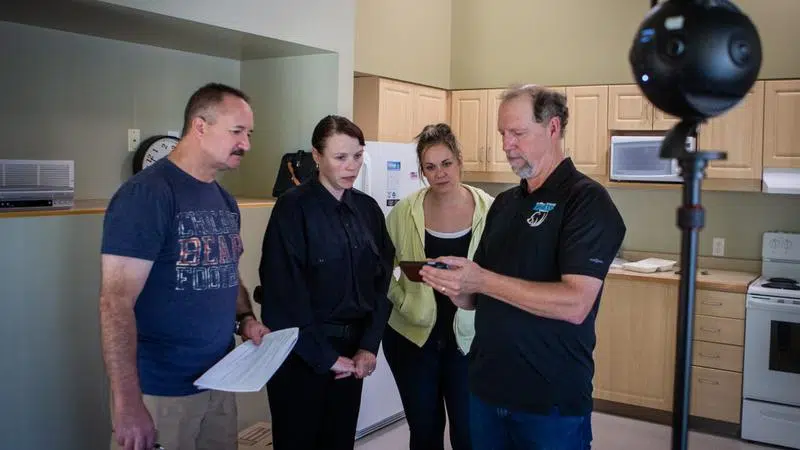
New project brings Virtual Reality to Lethbridge College program
LETHBRIDGE, AB – An interactive project out of Lethbridge College is set to offer students a realistic experience like no other.
The school has announced that as part of a one-year study, 360-degree video will be used to create two different training scenarios with live actors. Once this is completed, learners studying in the college’s School of Justice Studies will be able to enter the scenarios and interact with the people in the scene.
The study is being conducted by Dave Maze, chair of the School of Justice Studies, and George Gallant. Gallant is an instructor in the Digital Communications and Media program.
As it stands, students learn communication theory in a classroom setting and then practice their communication techniques on a simulator. Afterwards, they move on to face-to-face human tests.


